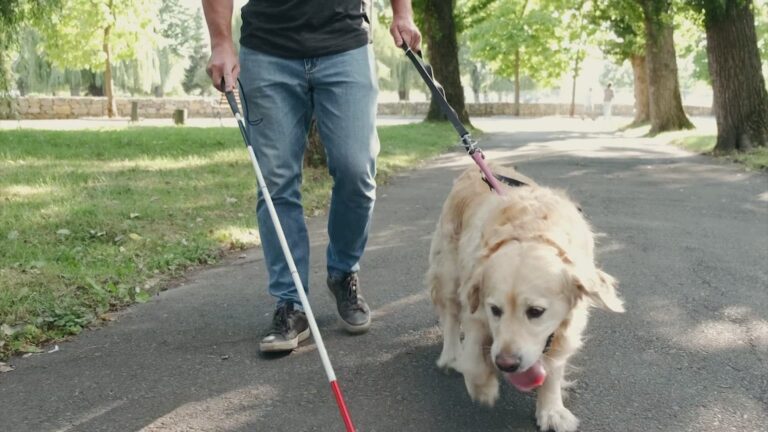When considering a service dog, you can ask about its training, certification, abilities, and tasks performed. These questions provide insight into the dog’s qualifications and its potential to assist with specific needs.
Service dogs provide vital support to individuals with disabilities, performing tasks such as guiding the visually impaired, alerting to sound for the deaf, and providing stability and balance for those with mobility issues. Properly trained and certified service dogs undergo rigorous training to develop the skills necessary to assist their handlers.
Understanding the questions to ask about a service dog can help individuals make informed decisions when considering a service dog as part of their support system.
Exploring The Role Of Service Dogs
Service dogs play a crucial role in supporting individuals with various disabilities and medical conditions. They are specifically trained to assist people with physical, sensory, psychiatric, intellectual, or other mental disabilities. These remarkable animals are not just pets but rather essential companions for their owners, providing practical and emotional support. Service dogs can be trained to perform a variety of tasks, including guiding individuals with visual impairments, alerting deaf individuals to important sounds, pulling wheelchairs, reminding individuals to take medication, and even interrupting harmful behaviors in individuals with psychiatric conditions.
Determining Eligibility For A Service Dog
Service dogs are highly trained to assist individuals with disabilities. Determining eligibility for a service dog involves considering who can benefit from one, the requirements for obtaining a service dog, and how the need for a service dog is assessed. People with various disabilities, such as visual or hearing impairments, physical disabilities, and medical conditions, may benefit from having a service dog. The requirements for obtaining a service dog usually involve having a diagnosed disability and the ability to independently care for the dog. The need for a service dog is typically assessed by healthcare professionals, who evaluate the individual’s specific disability and determine whether a service dog would provide assistance in performing daily tasks and improving their quality of life.
Appropriate Etiquette When Approaching A Service Dog Team
When encountering a service dog handler, it is important to always ask for permission before interacting with the dog. Avoid petting or making sudden movements towards the dog without consent from the handler.
Appropriate questions to ask about a service dog may include inquiries about the tasks the dog is trained to perform and the type of assistance it provides to the handler. Always approach the handler with respect and sensitivity, acknowledging the importance of the service dog’s role.
Understanding and respecting the working environment of a service dog entails refraining from distractions or interference while the dog is performing its tasks. It is crucial to give the service dog ample space to focus and carry out its duties effectively.

Credit: www.wired.com
Frequently Asked Questions Of What Questions Can You Ask About A Service Dog
What Are The Three Questions You Can Ask About A Service Dog?
You can ask about a service dog’s training, tasks, and legal rights.
What If Someone Is Allergic To My Service Dog?
If someone is allergic to your service dog, you can discuss alternative accommodations. Respect their needs.
Can You Ask For Proof Of Service Dog In New York?
Yes, in New York, you can ask for proof of a service dog.
What Are The Expectations Of A Service Dog?
Service dogs are trained to assist individuals with disabilities in various tasks. They are expected to provide support, alert to medical issues, and perform specific tasks as needed. These dogs are also expected to behave well in public spaces and remain focused on their handler’s needs.
Conclusion
Asking the right questions about service dogs can make a world of difference for those who rely on them. Understanding their training, role, and legal rights is essential for anyone interacting with a service dog. By asking thoughtful questions, you can help create a more inclusive and supportive environment for service dog handlers and their furry companions.



